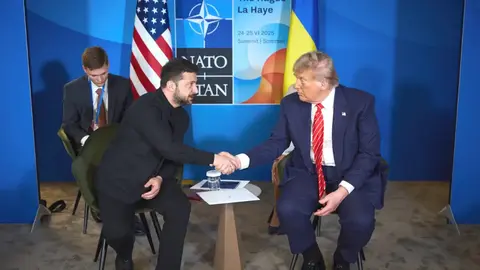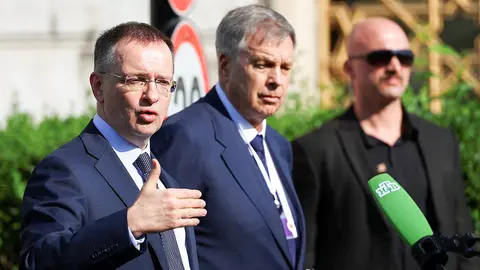First significant protests in Ukraine against Zelensky since the Russian invasion
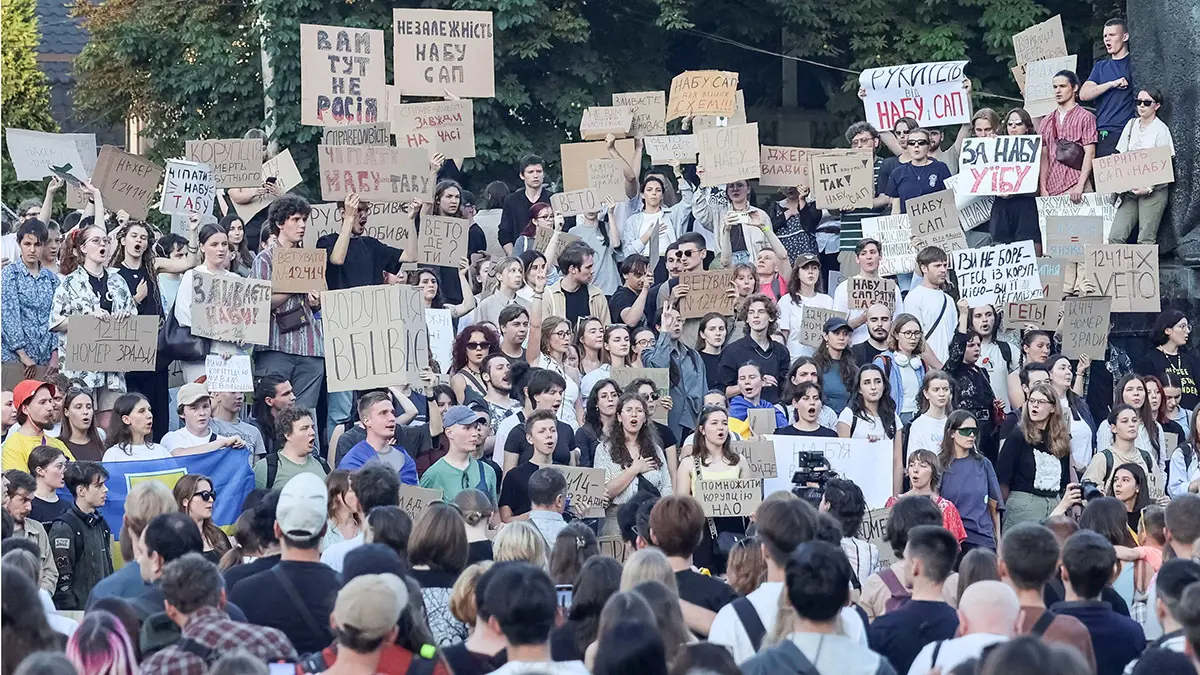
The Russian invasion of Ukraine has now lasted almost three and a half years. It has been a grim and difficult period for Ukrainians due to the incessant bombing and attacks by the Russian army under the orders of President Vladimir Putin, who seeks to seize territory from neighbouring Ukraine on the basis of a supposed historical claim that these enclaves belong to the Russian Federation.
Since the war in Ukraine began, there has been national unity around the established government led by President Volodymyr Zelensky, who became Ukrainian president in May 2019, in a unified response to Russia's despicable aggression.
But now, thousands of people have gathered in the capital Kiev and other Ukrainian cities such as Lviv, Odessa and Dnipro to oppose the measures promoted by President Volodymyr Zelensky to control anti-corruption agencies, in what is seen as an authoritarian drift by the Ukrainian president himself, who has received international criticism from various analysts for his government's handling of the situation in recent months. Among the slogans against Zelensky were ‘Corruption equals death’ and ‘Shame,’ in what have been the first significant protests against the Ukrainian government.
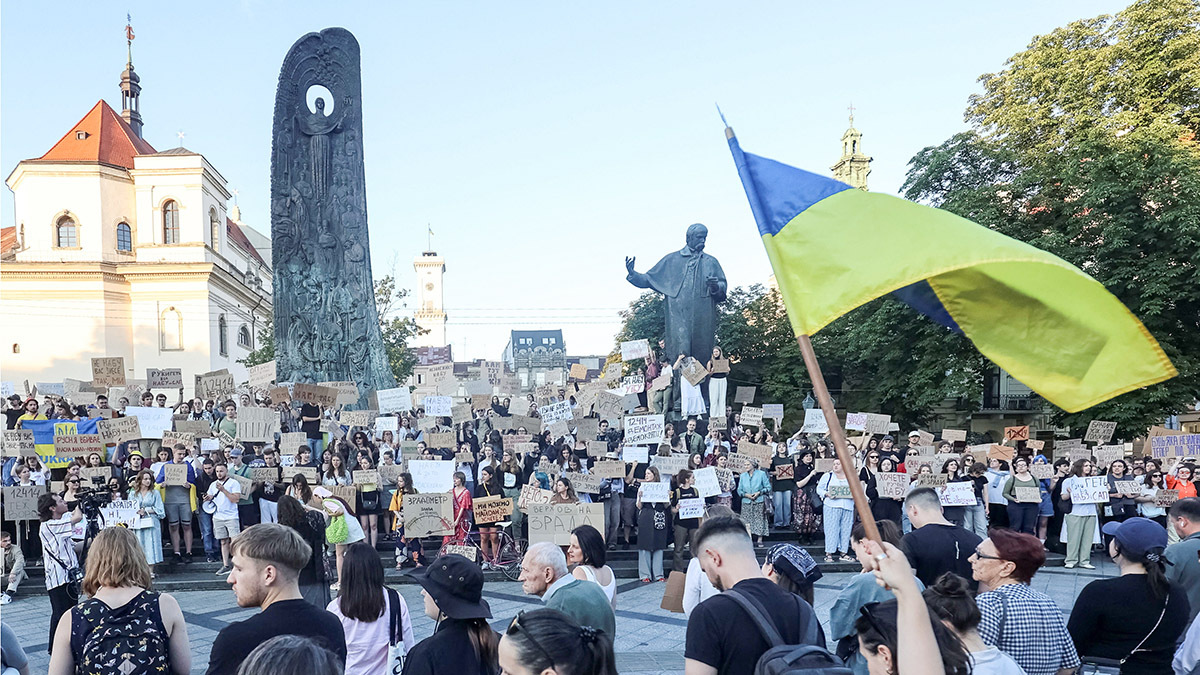
The Ukrainian president signed a controversial law restricting the independence of the main anti-corruption bodies: the National Anti-Corruption Bureau and the Anti-Corruption Prosecutor's Office, conferring the supervision and control of these independent bodies to the Prosecutor General's Office, which is dependent on the Ukrainian government, a decision that was ratified by the Rada or Ukrainian Parliament.
The parliamentary majority of Zelensky's party, Servant of the People, approved the new regulations, which state that the actions and investigations of the National Anti-Corruption Office and the Anti-Corruption Prosecutor's Office will now be under the authority of the Prosecutor General's Office, which will be able to halt cases or refer them to specific judicial bodies. In June, Volodymyr Zelensky personally appointed Ruslan Kravchenko, a figure close to the Ukrainian president, to head the Prosecutor General's Office. ‘Loyalty to the current administration has been the key requirement for prosecutors general in Ukraine,’ according to The Kyiv Independent, showing that there are people close to Zelensky who are taking charge of matters that may be sensitive.
Ruslan Kravchenko is a Ukrainian politician and prosecutor who has been head of the Kiev Regional Military Administration (from April 2023 to December 2024), head of the State Fiscal Service of Ukraine (from 31 December 2024 to 17 June 2025) and now serves as Ukraine's attorney general (since 21 June 2025).
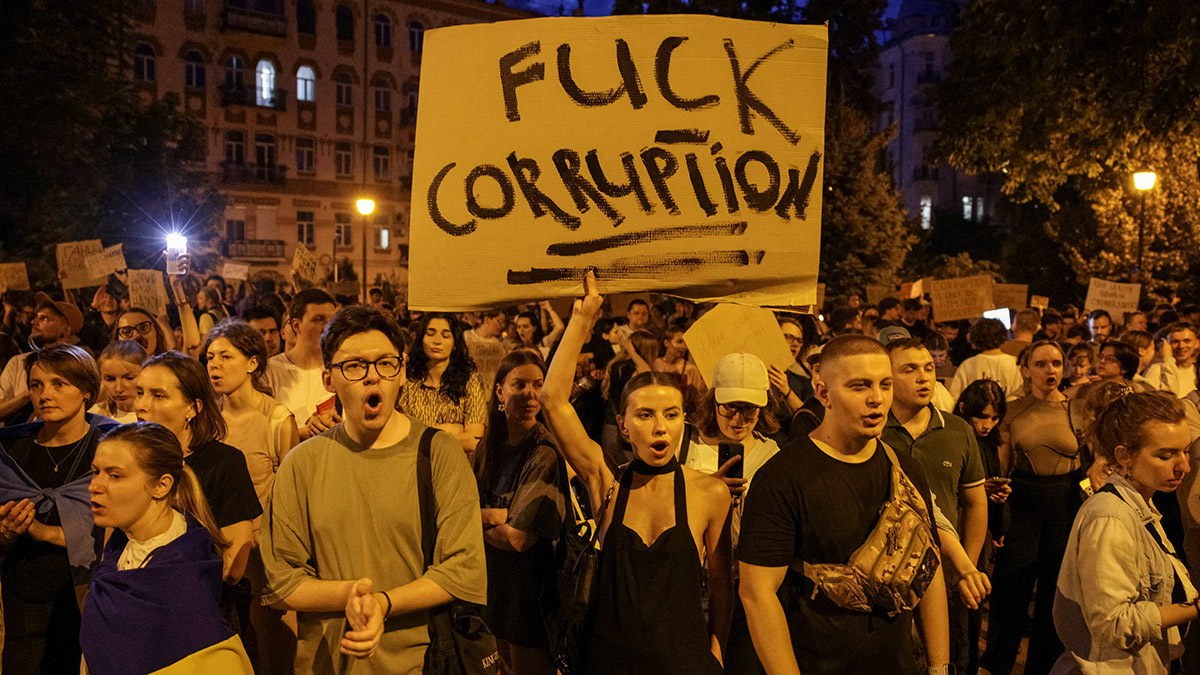
He is a strong figure within the Ukrainian state apparatus with recent merits and recognition for his services to Ukraine in the context of the Russian invasion. For example, on 23 August 2022, he received the Order of Merit, Third Class, for his significant achievements in strengthening the Ukrainian state, his courage and dedication in defending Ukraine's sovereignty and territorial integrity, his significant personal contribution to the development of various spheres of public life, the defence of our country's national interests and the scrupulous fulfilment of his professional duty. He is definitely a man very close to President Volodimir Zelenski's circle of power.
This subordination of the anti-corruption bodies to the Attorney General's Office, which is very close to Zelenski, is also in addition to actions that were questioned, such as the raids by the Ukrainian secret services against the National Anti-Corruption Bureau.
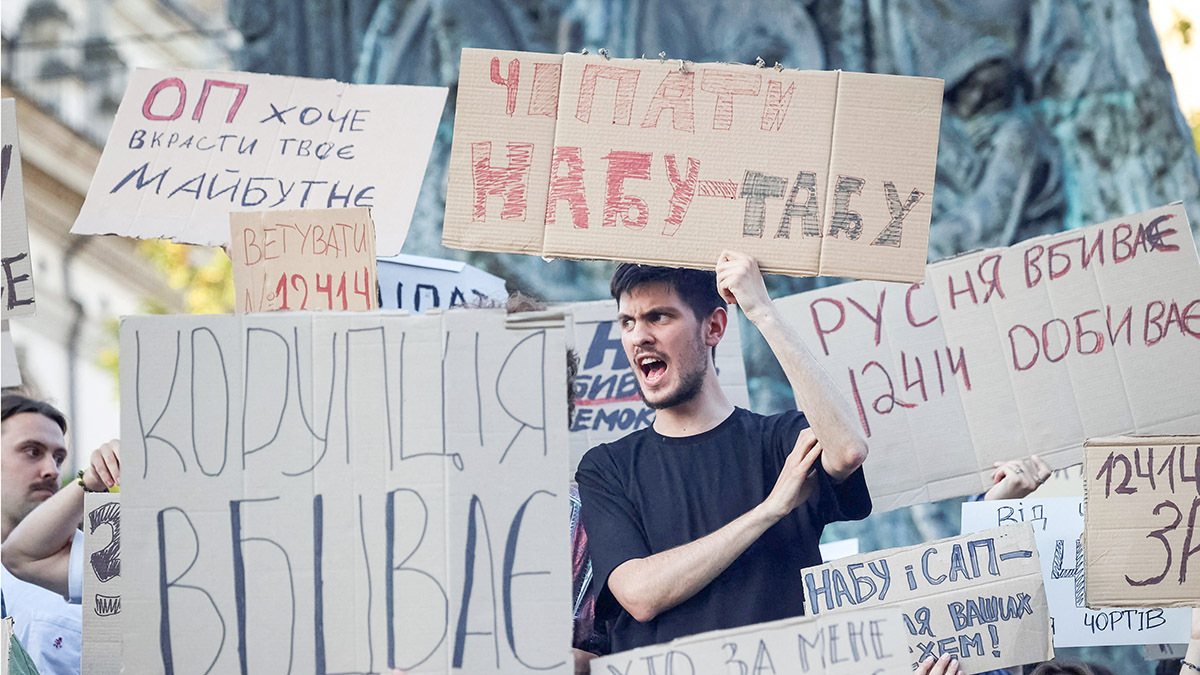
In the capital Kiev, more than 2,000 people gathered outside the presidential offices on Tuesday evening to criticise President Volodymyr Zelensky's handling of the decision to place the independence of the anti-corruption bodies under the control of the Prosecutor General's Office headed by Ruslan Kravchenko. Demonstrations in other areas such as Lviv, Odessa and Dnipro were less well attended, but did take place, as confirmed by various media outlets present in the area, including The Guardian.

